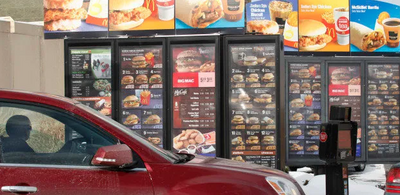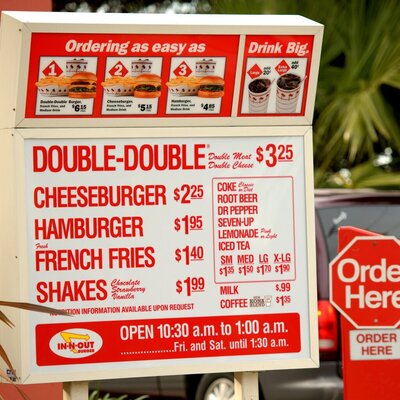Al3x Lee
Guru
- 952
Hey fellow P&C forum members (The best and most intelligent forum),
Today, I'm speaking to you not as an insurance expert, but as someone who has witnessed the growing complexity of the insurance industry and believes that it's time for a change. I want to draw a parallel between the world of insurance and the notion of simplicity, and I want to propose a bold idea – let's simplify insurance.

You know, back in the day, when my dad started in insurance, the policies were much less complex, like the menu at Mcdonald's used to be. But now, the choices seem endless, and it can be overwhelming to navigate the insurance landscape. Multiple policies, riders, deductibles, and coverage tiers leave us dazed and confused. It's as if we've replaced the simplicity of a cheeseburger with a menu of a thousand ingredients, each with its own price and value.
Imagine a different path – one that leads us toward clarity and simplicity. Imagine if insurance companies took a page out of In-N-Out Burger's playbook. In-N-Out has a limited menu, and they do it exceptionally well. They focus on the basics and deliver quality, freshness, and simplicity. So, how can we apply this idea to insurance?

Let me introduce you to the amazing, simple oasis known as Actual Cash Value (ACV). It's like ordering a plain cheeseburger at a gourmet burger joint – you know exactly what you're getting, no frills attached. You make a claim and get back what your stuff is worth – what a concept!
It's been argued that this simple concept can't be applied outside of property insurance, but the detractors have yet to make any headway on proving that you can't put a value on human life. In fact, many of the detractors on insurance-forums.com come from the life & health insurance community. Their logic proves hypocritical, as they put values on people's lives all day, yet they argue that things should be calculated differently for casualty insurance.
Simplifying insurance with Actual Cash Value isn't just a practical idea; it's an inspiring one. Imagine a world where insurance isn't about deciphering pages of fine print but is about peace of mind and reliability.
Today, I'm speaking to you not as an insurance expert, but as someone who has witnessed the growing complexity of the insurance industry and believes that it's time for a change. I want to draw a parallel between the world of insurance and the notion of simplicity, and I want to propose a bold idea – let's simplify insurance.

You know, back in the day, when my dad started in insurance, the policies were much less complex, like the menu at Mcdonald's used to be. But now, the choices seem endless, and it can be overwhelming to navigate the insurance landscape. Multiple policies, riders, deductibles, and coverage tiers leave us dazed and confused. It's as if we've replaced the simplicity of a cheeseburger with a menu of a thousand ingredients, each with its own price and value.
Imagine a different path – one that leads us toward clarity and simplicity. Imagine if insurance companies took a page out of In-N-Out Burger's playbook. In-N-Out has a limited menu, and they do it exceptionally well. They focus on the basics and deliver quality, freshness, and simplicity. So, how can we apply this idea to insurance?

Let me introduce you to the amazing, simple oasis known as Actual Cash Value (ACV). It's like ordering a plain cheeseburger at a gourmet burger joint – you know exactly what you're getting, no frills attached. You make a claim and get back what your stuff is worth – what a concept!
It's been argued that this simple concept can't be applied outside of property insurance, but the detractors have yet to make any headway on proving that you can't put a value on human life. In fact, many of the detractors on insurance-forums.com come from the life & health insurance community. Their logic proves hypocritical, as they put values on people's lives all day, yet they argue that things should be calculated differently for casualty insurance.
Simplifying insurance with Actual Cash Value isn't just a practical idea; it's an inspiring one. Imagine a world where insurance isn't about deciphering pages of fine print but is about peace of mind and reliability.
